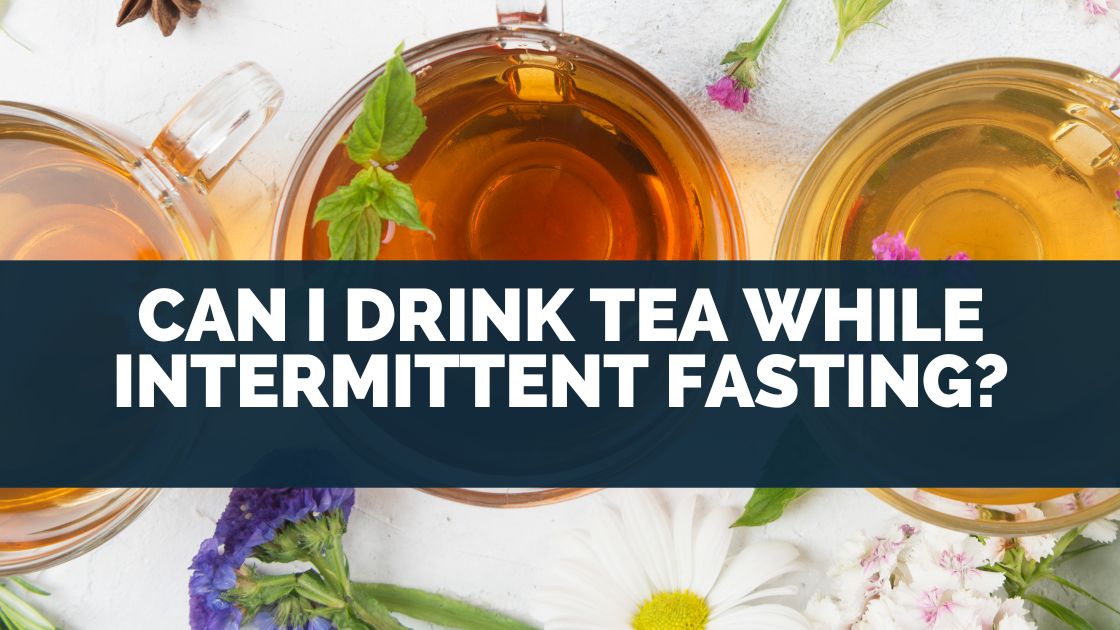Can I Drink Tea With Artificial Sweetener During Intermittent Fasting

The question plaguing intermittent fasters: Does that zero-calorie tea with artificial sweetener break your fast? Experts are weighing in, and the answer might surprise you.
Understanding the nuances of intermittent fasting (IF) and its interaction with artificial sweeteners is crucial for maximizing the potential health benefits. This article cuts through the noise to provide a clear, concise answer based on current scientific understanding.
The Core Question: Does Artificial Sweetener Affect Intermittent Fasting?
The primary concern is whether artificial sweeteners trigger an insulin response, effectively ending the fasted state. If they do, the fat-burning benefits of IF are potentially diminished.
It's not a straightforward "yes" or "no." The impact of artificial sweeteners on insulin response is complex and varies depending on the individual and the specific sweetener.
Insulin Response and Intermittent Fasting
Intermittent fasting works by depleting glycogen stores and forcing the body to use fat for energy. Any substance that significantly raises insulin levels can disrupt this process.
A 2018 study published in the journal Nutrients explored the effects of various artificial sweeteners on glucose and insulin responses. While some sweeteners had minimal impact, others showed a more pronounced effect on certain individuals.
Therefore, the question of breaking a fast hinges on whether a measurable insulin spike occurs.
Specific Artificial Sweeteners: A Closer Look
Aspartame: Research suggests it has a minimal impact on blood sugar and insulin levels in most people. However, some individuals may experience a slight rise. Further studies are warranted to confirm these findings.
Sucralose: Some studies indicate that sucralose can impact insulin sensitivity, particularly in individuals who don't regularly consume artificial sweeteners. A study in Diabetes Care suggested a potential link, but the results remain debated.
Stevia: Generally considered a better option. Stevia is derived from a plant and often has a smaller impact on blood glucose and insulin compared to other artificial sweeteners.
Erythritol: This sugar alcohol is often well-tolerated and has a negligible impact on insulin levels, making it a popular choice among intermittent fasters.
The Individual Factor: Your Body's Response
The most accurate way to determine if a particular artificial sweetener affects your fast is to monitor your body's response. This can be done using a blood glucose meter.
Test your blood glucose levels before and after consuming tea with artificial sweetener. If you observe a significant spike, that particular sweetener may be breaking your fast.
Keep a food diary to track your intermittent fasting progress alongside what you drink. This will help in understanding what is disrupting your fast.
The "Clean Fast" Approach: The Safest Bet
Many intermittent fasting proponents advocate for a "clean fast," meaning only water, black coffee, and plain tea are allowed. This approach eliminates any uncertainty about the impact of sweeteners.
A clean fast ensures that the body remains in a state of autophagy, a cellular cleansing process that is believed to be a key benefit of intermittent fasting. Autophagy is often disrupted by energy intake, including non-nutritive sweeteners in some individuals.
While you can drink tea with artificial sweeteners during intermittent fasting, the risk of breaking the fast exists. Individual tolerance and sensitivity varies. The best approach is to observe your personal reaction and, if in doubt, opt for a clean fast.
Recommendations and Next Steps
If you're serious about optimizing your intermittent fasting results, consider these steps:
- Experiment with different artificial sweeteners and monitor your blood glucose levels.
- Prioritize a clean fast for maximum benefits.
- Consult with a registered dietitian or healthcare provider for personalized advice.
Ongoing research continues to explore the complex interaction between artificial sweeteners and metabolic processes. Stay informed and adapt your intermittent fasting strategy as new evidence emerges.


















